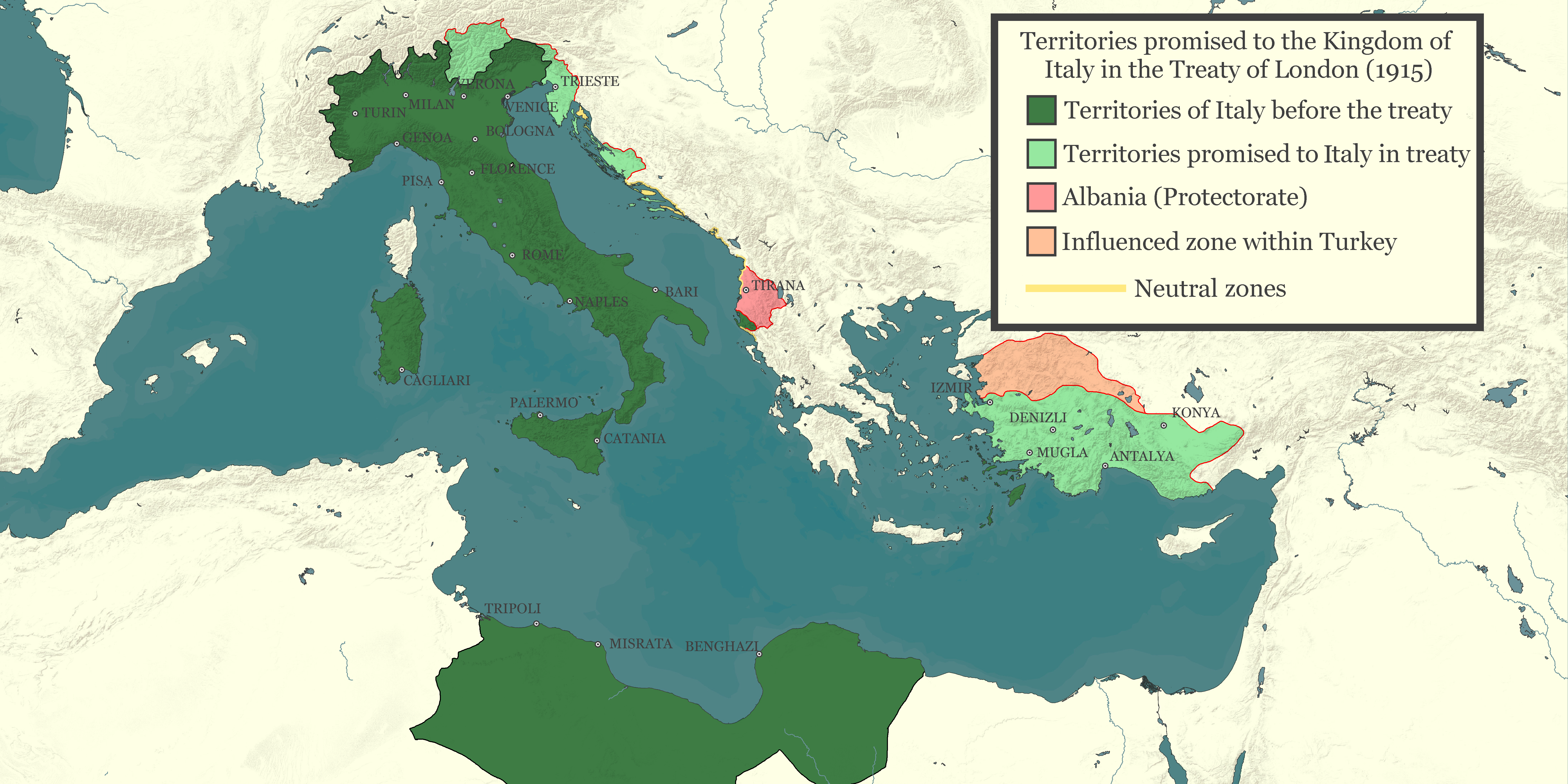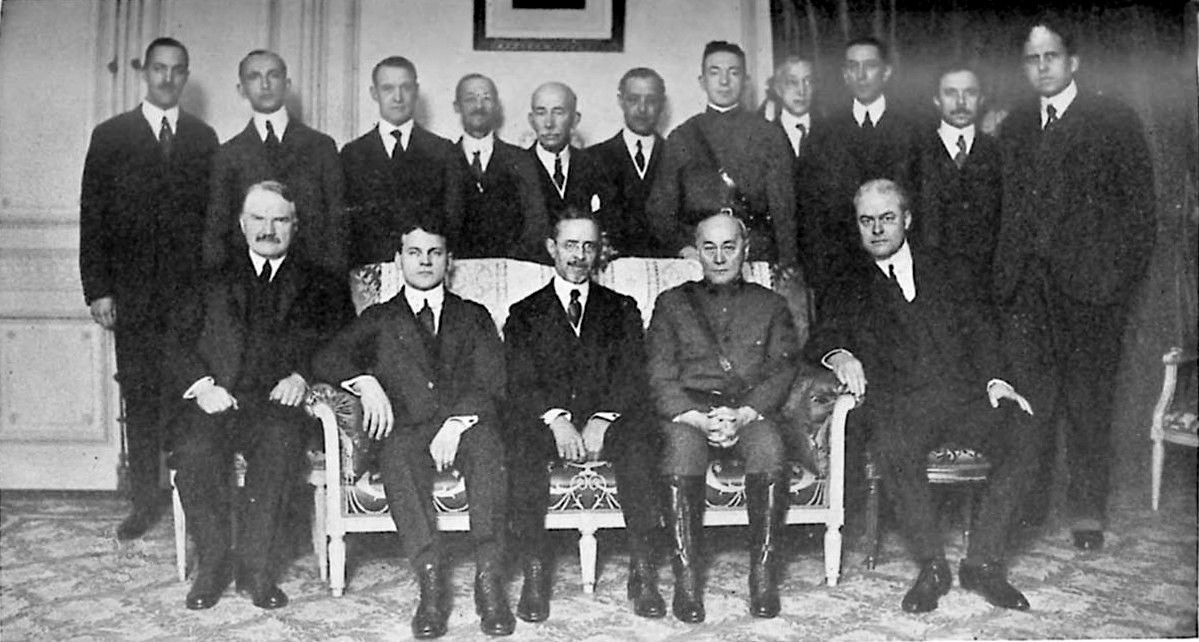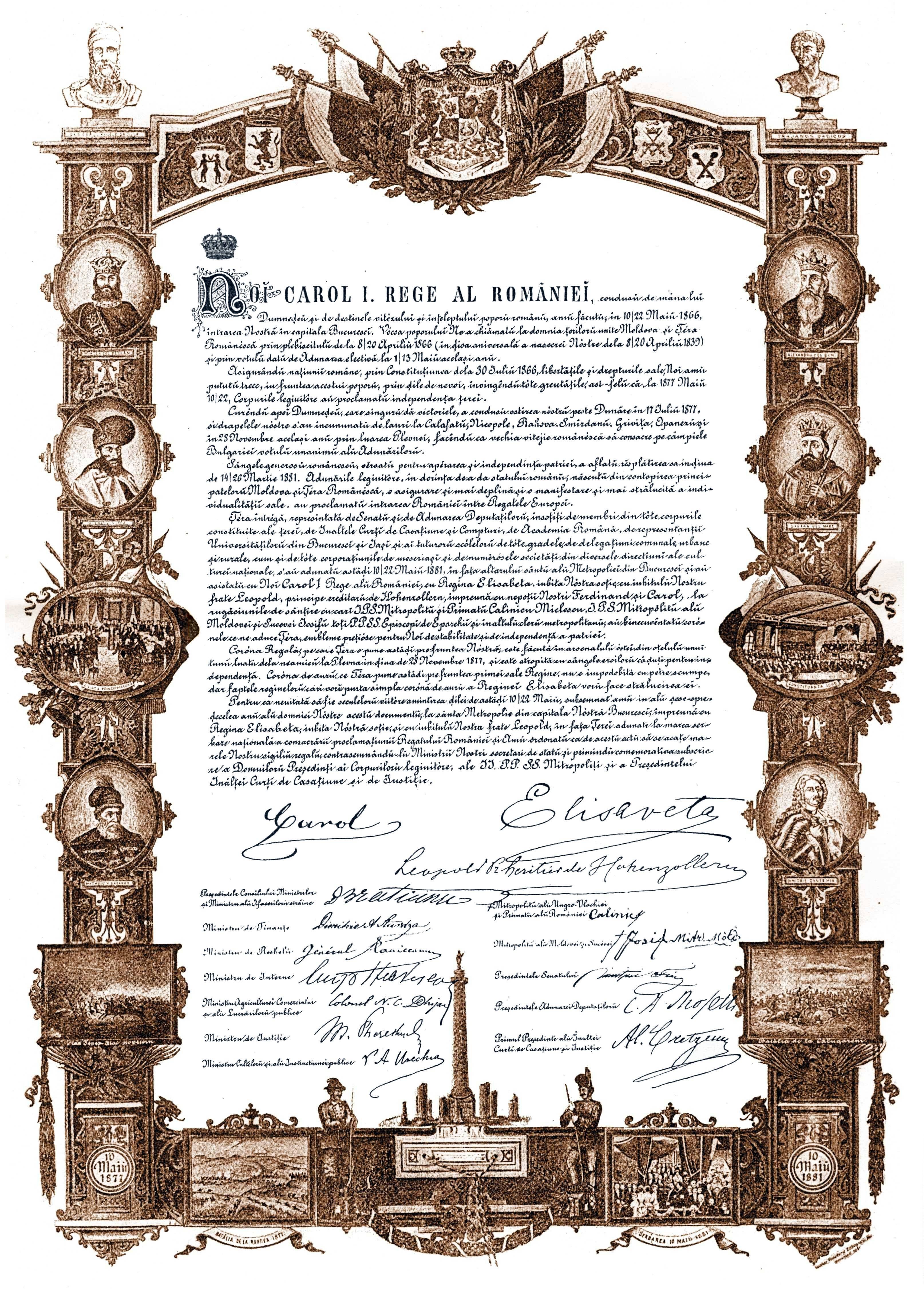|
Secret Treaty
A secret treaty is a treaty (international agreement) in which the contracting state parties have agreed to conceal the treaty's existence or substance from other states and the public.Helmut Tichy and Philip Bittner, "Article 80" in Olivier Dörr & Kirsten Schmalenbach (eds.) Vienna Convention on the Law of Treaties: a Commentary (Springer, 2012)), 1339, at 1341, note 11. Such a commitment to keep the agreement secret may be contained in the instrument itself or in a separate agreement. According to one compilation of secret treaties published in 2004, there have been 593 secret treaties negotiated by 110 countries and independent political entities since the year 1521. Secret treaties were highly important in the balance of power diplomacy of 18th and 19th century Europe, but are rare today. Secret treaties have been prevalent in authoritarian states where rulers use the treaties to suppress domestic opposition and unrest. History The "elaborate alliance systems" among E ... [...More Info...] [...Related Items...] OR: [Wikipedia] [Google] [Baidu] |
Treaty
A treaty is a formal, legally binding written agreement between sovereign states and/or international organizations that is governed by international law. A treaty may also be known as an international agreement, protocol, covenant, convention, pact, or exchange of letters, among other terms; however, only documents that are legally binding on the parties are considered treaties under international law. Treaties may be bilateral (between two countries) or multilateral (involving more than two countries). Treaties are among the earliest manifestations of international relations; the first known example is a border agreement between the Sumer, Sumerian city-states of Lagash and Umma around 3100 BC. International agreements were used in some form by most major civilizations and became increasingly common and more sophisticated during the Early modern period, early modern era. The early 19th century saw developments in diplomacy, foreign policy, and international law reflected by ... [...More Info...] [...Related Items...] OR: [Wikipedia] [Google] [Baidu] |
Treaty Of London (1915)
The Treaty of London (; ) or the Pact of London (, ) was a secret agreement concluded on 26 April 1915 by the United Kingdom, France, and Russia on the one part, and Italy on the other, in order to entice the last to enter the Great War on the side of the Triple Entente. The agreement involved promises of Italian territorial expansion against Austria-Hungary, the Ottoman Empire and in Africa where it was promised enlargement of its colonies. The Entente countries hoped to force the Central Powers – particularly Germany and Austria-Hungary – to divert some of their forces away from existing battlefields. The Entente also hoped that Romania and Bulgaria would be encouraged to join them after Italy did the same. In May 1915, Italy declared war on Austria-Hungary but waited a year before declaring war on Germany, leading France and the UK to resent the delay. At the Paris Peace Conference after the war, the United States of America applied pressure to void the treaty as con ... [...More Info...] [...Related Items...] OR: [Wikipedia] [Google] [Baidu] |
The Inquiry
The Inquiry was a study group established in September 1917 by Woodrow Wilson to prepare materials for the peace negotiations following World War I. The group, composed of around 150 academics, was directed by the presidential adviser Edward House and supervised directly by the philosopher Sidney Mezes. The Heads of Research were Walter Lippmann and his successor Isaiah Bowman. The group first worked out of the New York Public Library but later worked from the offices of the American Geographical Society of New York once Bowman had joined the group. Mezes's senior colleagues were the geographer Isaiah Bowman, the historian and librarian Archibald Cary Coolidge, the historian James Shotwell, and the lawyer David Hunter Miller. Progressive confidants who were consulted on staffing but did not contribute directly to the administration or reports of the group included James Truslow Adams, Louis Brandeis, Abbott Lawrence Lowell, and Walter Weyl. Twenty-one members of The Inquiry ... [...More Info...] [...Related Items...] OR: [Wikipedia] [Google] [Baidu] |
Walter Lippmann
Walter Lippmann (September 23, 1889 – December 14, 1974) was an American writer, reporter, and political commentator. With a career spanning 60 years, he is famous for being among the first to introduce the concept of the Cold War, coining the term "stereotype" in the modern psychological meaning, as well as critiquing media and democracy in his newspaper column and several books, most notably his 1922 ''Public Opinion (book), Public Opinion''. Lippmann also played a notable role as research director of Woodrow Wilson's post-World War I The Inquiry, board of inquiry. His views on the role of journalism in a democracy were contrasted with the contemporaneous writings of John Dewey in what has been retrospectively named the Lippmann–Dewey debate. Lippmann won two Pulitzer Prizes, one for his syndicated newspaper column "Today and Tomorrow" and one for his 1961 interview of Nikita Khrushchev. He has also been highly praised with titles ranging from "most influential" journali ... [...More Info...] [...Related Items...] OR: [Wikipedia] [Google] [Baidu] |
United States Congress
The United States Congress is the legislature, legislative branch of the federal government of the United States. It is a Bicameralism, bicameral legislature, including a Lower house, lower body, the United States House of Representatives, U.S. House of Representatives, and an Upper house, upper body, the United States Senate, U.S. Senate. They both meet in the United States Capitol in Washington, D.C. Members of Congress are chosen through direct election, though vacancies in the Senate may be filled by a Governor (United States), governor's appointment. Congress has a total of 535 voting members, a figure which includes 100 United States senators, senators and 435 List of current members of the United States House of Representatives, representatives; the House of Representatives has 6 additional Non-voting members of the United States House of Representatives, non-voting members. The vice president of the United States, as President of the Senate, has a vote in the Senate ... [...More Info...] [...Related Items...] OR: [Wikipedia] [Google] [Baidu] |
Fourteen Points
The Fourteen Points was a statement of principles for peace that was to be used for peace negotiations in order to end World War I. The principles were outlined in a January 8, 1918 speech on war aims and peace terms to the United States Congress by President Woodrow Wilson. However, his main Allied colleagues ( Georges Clemenceau of France, David Lloyd George of the United Kingdom, and Vittorio Emanuele Orlando of Italy) were skeptical of the applicability of Wilsonian idealism. The United States had joined the Triple Entente in fighting the Central Powers on April 6, 1917. Its entry into the war had in part been due to Germany's resumption of submarine warfare against merchant ships trading with France and Britain and also the interception of the Zimmermann Telegram. However, Wilson wanted to avoid the United States' involvement in the long-standing European tensions between the great powers; if America was going to fight, he wanted to try to separate that participation in ... [...More Info...] [...Related Items...] OR: [Wikipedia] [Google] [Baidu] |
Woodrow Wilson
Thomas Woodrow Wilson (December 28, 1856February 3, 1924) was the 28th president of the United States, serving from 1913 to 1921. He was the only History of the Democratic Party (United States), Democrat to serve as president during the Progressive Era when Republicans dominated the presidency and United States Congress, legislative branches. As president, Wilson changed the nation's economic policies and led the United States into World War I. He was the leading architect of the League of Nations, and his stance on foreign policy came to be known as Wilsonianism. Born in Staunton, Virginia, Wilson early life of Woodrow Wilson, grew up in the Southern United States during the American Civil War and Reconstruction era. After earning a Doctor of Philosophy, Ph.D. in history and political science from Johns Hopkins University, Wilson taught at several colleges prior to being appointed president of Princeton University, where he emerged as a prominent spokesman for progressivism ... [...More Info...] [...Related Items...] OR: [Wikipedia] [Google] [Baidu] |
Leon Trotsky
Lev Davidovich Bronstein ( – 21 August 1940), better known as Leon Trotsky,; ; also transliterated ''Lyev'', ''Trotski'', ''Trockij'' and ''Trotzky'' was a Russian revolutionary, Soviet politician, and political theorist. He was a key figure in the 1905 Revolution, October Revolution of 1917, Russian Civil War, and the establishment of the Soviet Union, from which he was exiled in 1929 before Assassination of Leon Trotsky, his assassination in 1940. Trotsky and Vladimir Lenin were widely considered the two most prominent figures in the Soviet state from 1917 until Death and state funeral of Vladimir Lenin, Lenin's death in 1924. Ideologically a Marxist and a Leninist, Trotsky's ideas inspired a school of Marxism known as Trotskyism. Trotsky joined the Russian Social Democratic Labour Party in 1898, being arrested and exiled to Siberia for his activities. In 1902 he escaped to London, where he met Lenin. Trotsky initially sided with the Mensheviks against Lenin's Bolsheviks in ... [...More Info...] [...Related Items...] OR: [Wikipedia] [Google] [Baidu] |
Bolsheviks
The Bolsheviks, led by Vladimir Lenin, were a radical Faction (political), faction of the Marxist Russian Social Democratic Labour Party (RSDLP) which split with the Mensheviks at the 2nd Congress of the Russian Social Democratic Labour Party, Second Party Congress in 1903. The Bolshevik party, formally established in 1912, seized power in Russia in the October Revolution of 1917, and was later renamed the Russian Communist Party, All-Union Communist Party, and ultimately the Communist Party of the Soviet Union. Its ideology, based on Leninism, Leninist and later Marxism–Leninism, Marxist–Leninist principles, became known as Bolshevism. The origin of the RSDLP split was Lenin's support for a smaller party of professional revolutionaries, as opposed to the Menshevik desire for a broad party membership. The influence of the factions fluctuated in the years up to 1912, when the RSDLP formally split in two. The political philosophy of the Bolsheviks was based on the Leninist pr ... [...More Info...] [...Related Items...] OR: [Wikipedia] [Google] [Baidu] |
October Revolution
The October Revolution, also known as the Great October Socialist Revolution (in Historiography in the Soviet Union, Soviet historiography), October coup, Bolshevik coup, or Bolshevik revolution, was the second of Russian Revolution, two revolutions in Russia in 1917. It was led by Vladimir Lenin's Bolsheviks as part of the broader Russian Revolution of 1917–1923. It began through an insurrection in Petrograd (now Saint Petersburg) on . It was the precipitating event of the Russian Civil War. The initial stage of the October Revolution, which involved the assault on Petrograd, occurred largely without any casualties. The October Revolution followed and capitalized on the February Revolution earlier that year, which had led to the abdication of Nicholas II and the creation of the Russian Provisional Government. The provisional government, led by Alexander Kerensky, had taken power after Grand Duke Michael Alexandrovich of Russia, Grand Duke Michael, the younger brother of ... [...More Info...] [...Related Items...] OR: [Wikipedia] [Google] [Baidu] |
President Woodrow Wilson (1913)
Thomas Woodrow Wilson (December 28, 1856February 3, 1924) was the 28th president of the United States, serving from 1913 to 1921. He was the only History of the Democratic Party (United States), Democrat to serve as president during the Progressive Era when Republicans dominated the presidency and United States Congress, legislative branches. As president, Wilson changed the nation's economic policies and led the United States into World War I. He was the leading architect of the League of Nations, and his stance on foreign policy came to be known as Wilsonianism. Born in Staunton, Virginia, Wilson early life of Woodrow Wilson, grew up in the Southern United States during the American Civil War and Reconstruction era. After earning a Doctor of Philosophy, Ph.D. in history and political science from Johns Hopkins University, Wilson taught at several colleges prior to being appointed president of Princeton University, where he emerged as a prominent spokesman for progressivism ... [...More Info...] [...Related Items...] OR: [Wikipedia] [Google] [Baidu] |
Kingdom Of Romania
The Kingdom of Romania () was a constitutional monarchy that existed from with the crowning of prince Karl of Hohenzollern-Sigmaringen as King of Romania, King Carol I of Romania, Carol I (thus beginning the Romanian royal family), until 1947 with the abdication of King Michael I of Romania, Michael I and the Romanian parliament's proclamation of the Socialist Republic of Romania, Romanian People's Republic. From 1859 to 1877, Romania evolved from a personal union of two Principality, principalities: (Moldavia and Wallachia) called the Unification of Moldavia and Wallachia also known as "The Little Union" under a single prince to an autonomous principality with a House of Hohenzollern, Hohenzollern monarchy. The country gained its independence from the Ottoman Empire during the Russo-Turkish War (1877–1878), 1877–1878 Russo-Turkish War (known locally as the Romanian War of Independence), after which it was forced to cede the southern part of Bessarabia in exchange for Northern ... [...More Info...] [...Related Items...] OR: [Wikipedia] [Google] [Baidu] |











